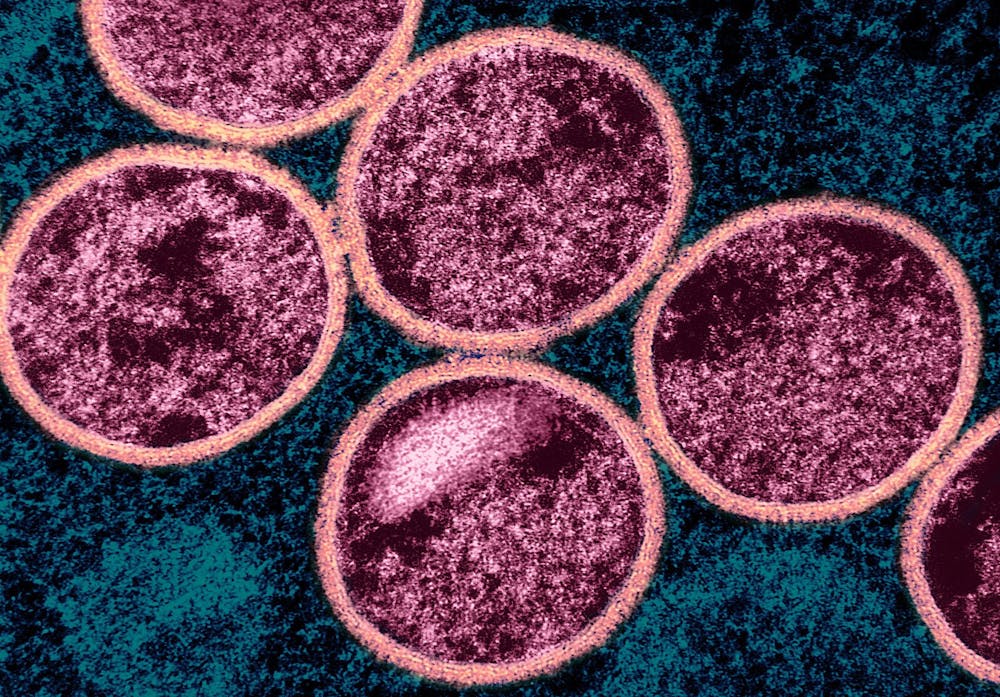By Brinda Patel
Staff Writer
The World Health Organization and the Africa Centres for Disease Control and Prevention declared mpox a global public health emergency on Aug. 20. This decision follows recent evidence showing that a strain of mpox, clade I MPXV, is becoming increasingly fatal as it spreads. During the past month, the continent of Africa has made headlines for experiencing the largest mpox outbreak, according to Science.org.
Mpox, formerly known as monkeypox, is a viral disease that can readily transmit to infected animals and humans. It can spread through physical contact or by touching any material previously used by an infected animal or person.
Symptoms of mpox include flu-like symptoms, back pain, muscle aches, fatigue, chills, blistering rashes and bumps across the body. These effects can last between three to 17 days. It is very unlikely to contract mpox again after being infected with the virus the first time. Mpox is only contagious until intrinsic symptoms subside or scabs dry and fall off the skin, according to the CDC.
For almost five decades, the disease has been solely confined in Central and West Africa.
In July 2022, the multi-country outbreak of mpox became more prominent and was declared a Public Health Emergency of International Concern (PHEIC) due to its rapid spread through close interpersonal contact across various countries where the virus had not previously been observed. Over 95,000 cases of clade II mpox were reported across over 115 countries.
However, this year’s surge has raised concerns beyond what was previously expected. Over 13 countries in Africa, primarily in the Democratic Republic of the Congo and Burundi, have reported over 21,422 suspected cases and over 630 deaths so far this year. Between clade I and clade II, the DRC currently holds the record for the highest number of mpox cases ever recorded.
The supply of the mpox vaccine, JYNNEOS, however, is lacking in Africa. Aside from the DRC, Nigeria is the only other country to supply the vaccines. The European Commission donated over 215,000 doses to the DRC, and the U.S. Agency for International Development donated 10,000 doses to Nigeria last month.
A New York based health commissioner, Dr. Ashwin Vasan, backed WHO’s decision to declare a global emergency and also urged the public to get more than one dose of JYNNEOS for optimal results.
“As we learn time and again, we are connected, and we cannot stand by and hope that another country's suffering will not reach us," Vasan told CBS News.
According to the Washington State Department of Health, people should receive two doses of the JYNNEOS vaccine to effectively prevent viral infections and diseases. In addition, anyone infected should report their range of symptoms to medical personnel within 4 to 14 days of exposure.
As mpox continues to spread, critical efforts are being taken to boost public awareness and to broaden vaccination campaigns. For example, the United Nations has spoken out with critical information on the prevention and treatment of the disease.
The virus remains an imminent threat due to its ability to rapidly spread and create severe health problems.







